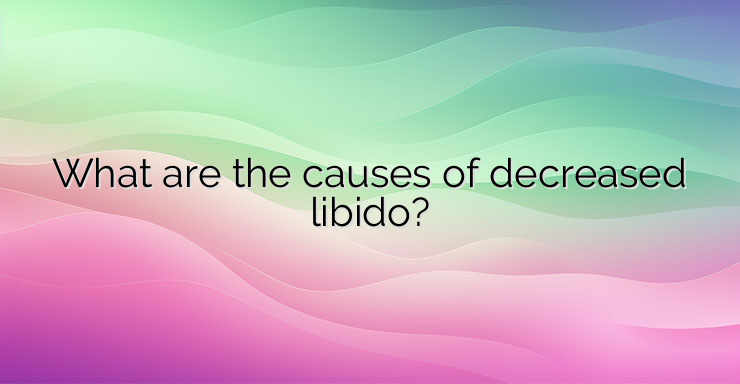Decreased libido is a common problem that can affect both men and women. The reasons for decreased sexual desire are manifold and can include both physiological and psychological factors. Physiological aspects include hormonal imbalance, which can be caused by poor nutrition, chronic diseases and even stress. Changes in hormone levels, such as testosterone or estrogen, can lead to decreased libido. Psychological factors also play an important role – stress, depression, anxiety and problems in interpersonal relationships often reduce sexual desire. During pregnancy and menopause, hormones change, and looking after a baby can also be tiring. Personal life and sexual identity can be affected by decreased libido, leading to unsatisfactory sexual relationships and further reflecting on sexual desire. Many people experience periods of decreased sexual desire due to physical health problems and various life events. Diseases such as heart and chronic kidney disease, diabetes, cancer, rheumatoid arthritis, thyroid problems, hyperprolactinemia, even just headaches and high blood pressure can permanently suppress the desire for sex. Decreased libido is one of the most common sexual problems for which people consult sexologists. It is important to note that it is something that can be addressed and treated, especially when its causes are understood. Other symptoms of low libido, besides decreased sex drive, are a lack of interest in any kind of sex, even masturbation, and a decrease in sexual fantasies. A diagnosis of low libido is made based on a medical and psychological evaluation. The main steps are: Medical history and examination: The doctor conducts an interview and examination to understand the patient’s medical and sexual history. This includes discussing medical problems, taking medications, and other factors that may affect libido. Laboratory tests: The doctor may recommend various laboratory tests to measure hormone levels, such as testosterone and thyroid hormones. Psychological Assessment: Psychological factors play an important role in libido. Therefore, a consultation with a psychologist or psychiatrist can be done to rule out possible psychological problems or stress. Discussing personal problems and stressors: It is important for the patient to share the presence of personal problems and stressors that may affect his libido. Therapy depends on the causes. For example, some medications, such as antidepressants, can reduce libido and should be discontinued. Psychological therapy is very useful if low libido is provoked by stress and anxiety. A healthy diet and a healthy lifestyle also manage stress. Consultation with a sexologist improves intimate relationships,and as a last resort, hormone therapy can be prescribed to improve libido. References: 1. https://www.nhs.uk/conditions/loss-of-libido/ 2. https://my.clevelandclinic.org/health/diseases/15216-low-libido-low-sex-drive 3 https://www.mayoclinic.org/diseases-conditions/low-sex-drive-in-women/symptoms-causes/syc-20374554


Leave a Reply